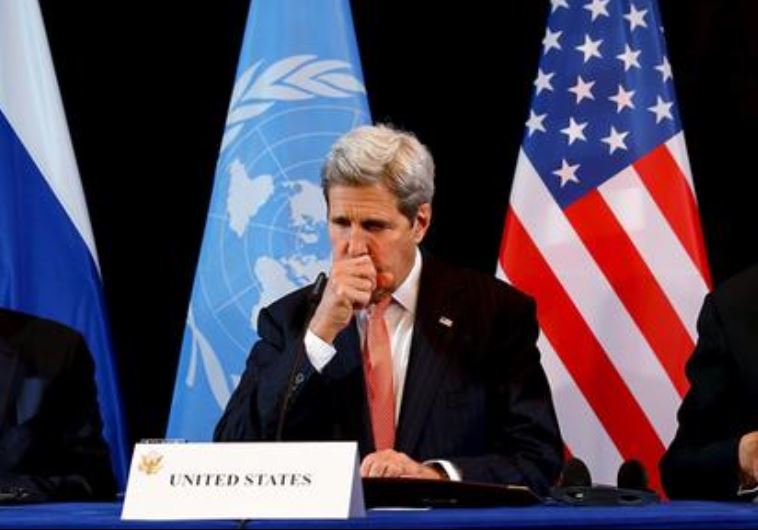Kerry: Cease-fire in Syria has ‘fallen completely’ in some areas
US, UN and EU pressuring Russia to use leverage with Assad to end renewed bombing around Aleppo • UN envoy to Moscow on Tuesday.
 US Secretary of State John Kerry in Munich, Germany, February 12, 2016.Updated:
US Secretary of State John Kerry in Munich, Germany, February 12, 2016.Updated: